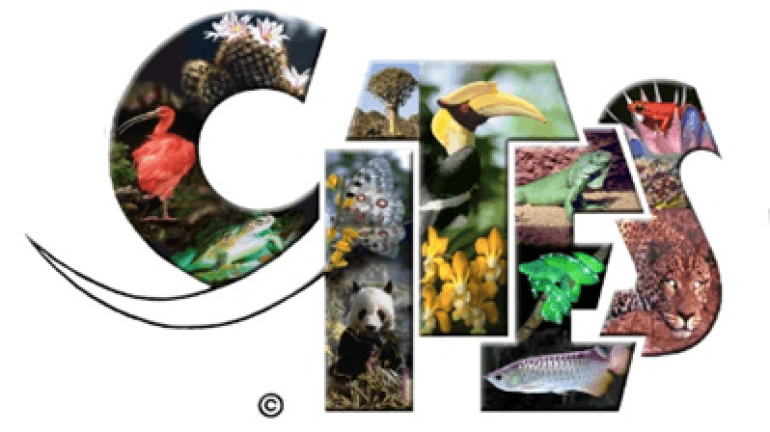

20.12.2024
The 20ᵉ Conference of the Parties (CoP20) to the Convention on International Trade in Endangered Species of Wild Fauna and Flora (CITES) will be held in Samarkand, Uzbekistan, from November 24 to December 5, 2025.

In preparation for this major event, the scientific authorities of the European Union (EU) member states initiated consultations to assess the suitability of including several African timber species in Appendix II of the Convention. These included species of the Entandrophragma spp. genus - Tiama (E. angolense), Kossipo (E. candollei), Sapelli (E. cylindricum) and Sipo (E. utile) - as well as Okoumé (Aucoumea klaineana).
The aim was to gather the views of range countries on the appropriateness of such a listing, as well as on the most appropriate annotation, if necessary. On the basis of the information submitted by the range states of these species, mainly in Central Africa, the European Union has decided to postpone its draft proposal to a later date. However, this project remains an objective for CoP21 in 2028, particularly as these species are already listed in Appendix D of the European Wildlife Trade Regulation. In this sense, it will be important to continue strengthening the elements of legality (Maintain high legal requirements, in line with the Convention's categories), sustainability ( Collect data on species via the DYNAFAC collective's devices, valorize through scientific publications and Share research results in formats adapted to target audiences), and traceability(Optimize existing digital and paper tools to guarantee reliable tracking of trade).
A major concern that also mobilized Central African exporting countries at the end of the year concerned the criteria and elements required for issuing import permits in the European Union. The listing of a species in Appendix II of CITES requires export permits to be issued by the country of origin, and import permits to access the European market. Since the Afzelia, Khayaand Pterocarpus species listings came into force - in addition to those already listed such as Pericopsis elata, Guibourtia spp. and other timber species - several exporting countries have carried out the necessary studies to issue Non-Detriment Finding Notices (NDFNs), set quotas and issued export permits.
However, importers still encounter many difficulties in obtaining import permits from EU CITES authorities. While some delays or refusals of permits can be attributed to insufficient preparation of dossiers by exporting countries, many cases reveal deeper challenges within EU CITES: (i) lack of knowledge of the forest management context in Central Africa by certain European CITES authorities; (ii) non-recognition of ACNPs produced by exporting countries, even though they comply with CITES requirements; (iii) lack of transparency on the criteria and parameters applied by European CITES authorities to assess permit applications; (iv) poor communication between European CITES authorities and exporting countries, limiting the exchange of information to clarify or complete the dossiers submitted.
Faced with these challenges, the European Union recently clarified its expectations and procedures with Notification to Parties No. 2024/138, which details the measures in force for the import of timber into the EU, as well as the process for reviewing the sustainability criteria applied to timber ACNPs. Although the general recommendations, required documentation and currently applied criteria are now better defined, it is regrettable to note that these requirements were developed and implemented without prior consultation of the parties. Furthermore, the application procedures and specific parameters used to assess applications and issue permits remain insufficiently transparent.
To meet these challenges, exporting countries will need to mobilize early next year to find the necessary communication channels and obtain clarification of European expectations. Such an approach is essential to remove ambiguities, strengthen collaboration between parties and facilitate legal and sustainable trade in the species concerned.